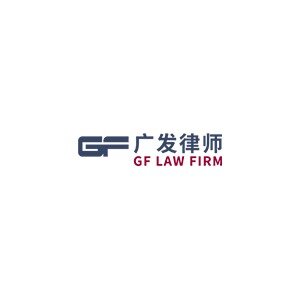Best Tax Lawyers in Hangzhou
Share your needs with us, get contacted by law firms.
Free. Takes 2 min.
List of the best lawyers in Hangzhou, China
About Tax Law in Hangzhou, China
Hangzhou, the capital city of Zhejiang Province in China, is a thriving economic hub known for its innovation and progressive business environment. As part of the Chinese tax system, individuals and businesses in Hangzhou are subject to national and local tax regulations. The tax framework in Hangzhou encompasses various taxes, including Value-Added Tax (VAT), Corporate Income Tax, Individual Income Tax, and local taxes specific to the region. Due to Hangzhou's rapid economic growth, tax regulation enforcement is taken seriously, demanding careful compliance from both individuals and businesses.
Why You May Need a Lawyer
Engaging with the tax system in Hangzhou can be complex, and there are many situations where legal assistance may be beneficial. Common scenarios include:
- Starting a Business: Navigating the legal requirements and tax obligations.
- Audits and Disputes: Handling audits or disputes with tax authorities.
- Tax Optimization: Structuring finances to comply with tax laws while maximizing benefits.
- International Transactions: Understanding cross-border taxation implications.
- Property Transactions: Addressing tax issues related to real estate.
Local Laws Overview
Hangzhou, while aligned with national tax laws, has specific regulations and incentives that cater to its local economic environment. Key aspects include:
- Value-Added Tax (VAT): Applicable primarily to the supply of goods and services, with rates varying depending on the nature of goods and services.
- Corporate Income Tax (CIT): Generally set at 25%, with preferential rates available for qualified small enterprises and entities within special sectors.
- Individual Income Tax (IIT): Progressive tax rates apply to worldwide income, with thresholds defined by national laws.
- Local Surcharges and Fees: Additional local duties may apply, supporting community and infrastructure projects.
Frequently Asked Questions
What types of taxes are most common for businesses in Hangzhou?
Businesses in Hangzhou commonly deal with Value-Added Tax (VAT), Corporate Income Tax (CIT), and local surcharges.
How does the Value-Added Tax (VAT) system work in Hangzhou?
VAT applies to the sale of goods, processing, repair, and replacement services, with different rates for various industries. It is critical to maintain accurate records and invoices.
Are there any tax incentives for new businesses in Hangzhou?
Yes, Hangzhou offers several tax incentives, especially for small and medium-sized enterprises, high-tech businesses, and foreign investors.
How are individual income taxes calculated in Hangzhou?
Individual Income Tax (IIT) is calculated based on progressive rates and is applicable on worldwide income for residents.
Can foreign investors receive any tax benefits in Hangzhou?
Yes, foreign investors can access certain tax incentives, particularly if they invest in priority sectors or high-tech industries.
What happens if I don't file my taxes on time in Hangzhou?
Late filing can result in penalties and interest on the amount due. It is advisable to file accurately and on time to avoid legal issues.
What should I do if I disagree with a tax assessment?
If you disagree with a tax assessment, it's important to consult a professional. You may appeal or dispute the assessment through appropriate legal channels.
Are there any special considerations for freelancers regarding taxes in Hangzhou?
Freelancers must register for tax purposes and are subject to the Individual Income Tax. Proper financial records are essential for compliance.
How does Hangzhou deal with international taxation?
Hangzhou, adhering to national policies, provides guidance on double taxation and tax treaties to prevent double taxing of international income.
Where can I find reliable tax advice in Hangzhou?
Consulting with certified tax professionals or legal firms specializing in tax law is recommended for reliable advice.
Additional Resources
Those requiring assistance can benefit from the following resources:
- State Administration of Taxation: The primary body governing tax matters in China.
- Zhejiang Taxation Bureau: Offers localized support and information specific to the provincial tax regulations.
- Legal Aid Centers: Can provide subsidized legal services based on eligibility.
- Professional Associations: Such as the Zhejiang Association of Certified Public Accountants.
Next Steps
If you require legal assistance in handling tax matters in Hangzhou, consider the following steps:
- Identify Your Needs: Clearly define the tax issue you are facing.
- Research Legal Experts: Look for law firms or consultants specializing in tax law in Hangzhou.
- Prepare Documentation: Gather all necessary financial and business documents.
- Schedule Consultations: Engage with several professionals to understand their approach and recommendations.
- Evaluate Cost vs. Benefit: Ensure that the legal costs justify the potential benefits of resolving your tax issue.
Lawzana helps you find the best lawyers and law firms in Hangzhou through a curated and pre-screened list of qualified legal professionals. Our platform offers rankings and detailed profiles of attorneys and law firms, allowing you to compare based on practice areas, including Tax, experience, and client feedback.
Each profile includes a description of the firm's areas of practice, client reviews, team members and partners, year of establishment, spoken languages, office locations, contact information, social media presence, and any published articles or resources. Most firms on our platform speak English and are experienced in both local and international legal matters.
Get a quote from top-rated law firms in Hangzhou, China — quickly, securely, and without unnecessary hassle.
Disclaimer:
The information provided on this page is for general informational purposes only and does not constitute legal advice. While we strive to ensure the accuracy and relevance of the content, legal information may change over time, and interpretations of the law can vary. You should always consult with a qualified legal professional for advice specific to your situation.
We disclaim all liability for actions taken or not taken based on the content of this page. If you believe any information is incorrect or outdated, please contact us, and we will review and update it where appropriate.










